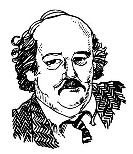Syndicated to Kansas newspapers Aug. 28, 2017.
 We’re still waiting for that stern letter to Secretary of State Kris Kobach from the leaders of the Kansas Legislature about his use of that seven-letter word they don’t like to hear on the campaign trail.
We’re still waiting for that stern letter to Secretary of State Kris Kobach from the leaders of the Kansas Legislature about his use of that seven-letter word they don’t like to hear on the campaign trail.
Nope, it’s not about body parts, or what you say when the low-fuel light starts blinking on the dashboard.
It’s “corrupt.”
And, it struck a nerve with at least one state representative earlier this summer, when House Speaker pro tem Scott Schwab, a Republican from Olathe, told the legislative leadership council he didn’t like the sound of it and it is disrespectful of lawmakers and other holders of state office.
Schwab is working on a stern letter that the Legislative Coordinating Council—the leaders of each chamber—urged him to get written for their signature so they can tell Kobach to tone down that inflammatory word unless he files charges against those corrupt politicians he never identifies by name and office held.
Kobach has been quiet while that letter is being written, but you gotta know that you hardly ever go wrong with that word among voters who think they are paying too much in taxes or the neighbor’s street gets plowed but not theirs, or they can’t smoke in the courthouse anymore…
Corrupt has become almost a word you read or hear but don’t pay any attention to, sorta like “excuse me” or “is that your pistol?”
Yes, we’re all waiting to see just what letter is going to look like, and whether the legislative leadership which on an apparent unanimous vote unleashed Schwab to get it written with the assistance of the Kansas Revisor of Statute’s office will sign the letter.
Schwab doesn’t make a bad point, it’s a little demeaning to be called corrupt just because you got elected to the Kansas House or Senate or to a statewide office. Just because someone’s taxes have to go up, or the local bars wanted support for those communal drinking areas last session so they could start using those cool red plastic cups so their patrons could wander down the street to the hardware store, doesn’t mean you’re corrupt.
But at some point, state elected officials are just trying to run the government for us and aren’t getting any side benefit (maybe a little less ice, a little more rum in that red cup?).
There’s probably a good point among all the linguistics here. If anyone, even a candidate, knows that a state official has done something corrupt, well, someone needs to be told about it. A complaint filed or something.
But just tossing around the word isn’t a good idea, nothing you would want your children to do.
And while Kobach is a candidate for the Republican nomination for governor, we noticed that Schwab has nearly become a candidate for the post Kobach is giving up. He’s named a campaign treasurer, but hasn’t dug out the starched white shirt he’ll probably wear when he makes a formal announcement that he wants the GOP nomination for Secretary of State in next year’s election cycle.
And even the whole issue of blasting candidates as “corrupt” probably becomes a fairly decent little campaign issue for Schwab, who by avoiding using that word can essentially claim that he is politer than his predecessor.
Gotta say, though, that if a candidate tosses out the word corrupt, and then shows us proof of that corruption, that’s a pretty good sign the candidate is watching out for all of us. But just tossing the word out without some evidence of who is corrupt, what the corruption is, and initiating some action to stop it isn’t in the best public interest.
Yep, that word “corrupt” is relatively powerful. Let’s see what lawmakers, or at least legislative leaders, do with it…
